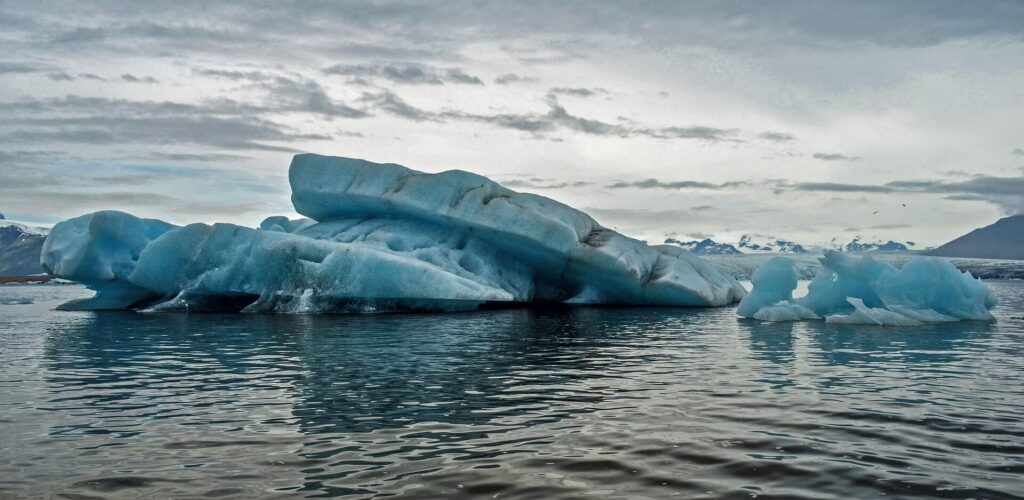
The Earth’s weather is changing, whether you believe it or not. It’s been a long time coming and affects nearly all aspects of our lives. In fact, every government, industry, and field should be analyzing climate change data for insights. Why do I need to analyze data? While we’re not all scientists, we all have a personal stake in the changing data. Our livelihood depends on it, one way or another.
Data awareness is lacking, making it difficult to create effective change in our lives. We’re all affected in nearly every way and we need data insights to guide us. But how do you make sense from so many different data sources? Build a data narrative and correlations between data sets.
The obvious data
It’s been decades since we first heard about melting polar ice caps and rising sea levels and it’s still a problem. And we’ll see even more consequences in the next few decades. Coastal regions, like Miami, already feel rising sea levels because it’s flooding people’s homes. But that’s the only consequence of rising sea levels. Not in the least. It’s doing everything from pushing down the ocean floor to straining the health of socio-economically vulnerable populations.
And there’s more to climate change than just melting glaciers. You’ve might’ve experienced tell-tale symptoms of it already. Is it hotter than usual? Did it snow more than usual? Is there a strong drought season? Weather events are more convincing since we’re able to physically experience them and contribute key data points. But then the weather itself leads to a mess of dire consequences as well.
In the past few years alone, there’s been an increase of weather events that are threatening lives. Not too long ago, Canada and parts of the US saw record breaking temperatures. A polar vortex created extreme freezing conditions below -60 degrees, colder than temperatures in Alaska, Antarctica, and even Mars. It doesn’t matter what you believe, you can’t deny extreme weather and the lives it takes.
Think you’re safe from the cold? Be careful of mosquitos, as warmer breeding grounds has already increased the spread of mosquito-transmitted diseases. And while these blood-sucking nuisances thrive, we’re losing important insects that are crucial to ecological balance, food production, soil quality, and other staples of livelihood.
We’re losing business, food, and our health
Local and global economies are so heavily intertwined that industries like agriculture directly affected by severe weather patterns will alter existing economic models. This means profits, jobs, and services can fail. Don’t believe it? Recent wildfires in California highlighted the lack of infrastructure within utilities and energy. Not only has the utility company (and a small insurance company) gone bankrupt, there’s the matter of the $30 billion bill. Thousands of victims have lost more than just homes, buildings have been reduced to ashes, and there’s a whole lot of restructuring that needs to be done.
We don’t have the infrastructure or money to keep dealing with these disasters. And no matter how much we try to improve individual efforts, the real problem lies with corporations and the government. Large corporations have larger carbon footprints that contribute to climate change. And still, nothing is being done to protect us. If the federal government and corporations fail to act, we’ll simply fall apart.
Even now, frightening rises in illness have scientists hypothesizing climate change as the culprit. And since health is affected by external conditions, like pollutants, we can expect much worse soon enough. Farming, fishing, obesity, violence, security, and everything else that affects us is changing. As ecosystems are thrown out of balance, many species find themselves in a literal fight to the death. The existing collaborative research and data can’t even begin to predict all the possible ways we’ll be affected. We only know it’ll be costly.
So what’s being done?
At the moment, not enough. We’re seeing unprecedented change that we don’t know how to stop. It’s proven difficult to convince people of the existing threat because it’s hard to convey the true scale of disaster. But with data applications and visualization, data can be analyzed and communicated to further the cause. Data stories continue to convince people of the true damage and push us towards positive change.
So the next time you’re eating, walking outside, or at work, think about how climate change can take it all away (and how data can protect you).
